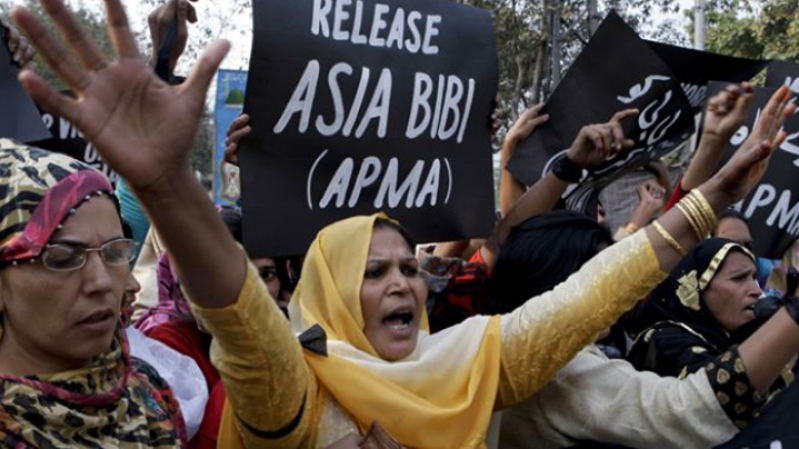
Asia Bibi, the Pakistani Christian mother who has suffered in prison since she was arrested in 2010, will have one final chance to overturn the decision which sentenced her to death under the country's blasphemy laws.
Bibi will have her final appeal heard by the Supreme Court in the second week of October, according to International Christian Concern (ICC), which notes that the hearing is the final legal avenue available to avoid execution.
Advocate Said-ul-Malook, Bibi's lawyer, told the persecution charity, "I will appear before the Supreme Court of Pakistan and argue her case while she will remain in prison...I hope the result will be an acquittal."
As earlier reported, Bibi was first arrested in 2009 after getting into an argument with two Muslim field workers when the women refused to drink from a bucket of water she had touched because she was not Muslim. In turn, Bibi was accused of defiling the name of the Prophet Muhammad, a serious charge which carries the death penalty.
Later the women told a local cleric that Bibi had blasphemed against Islam by saying: "My Christ died for me. What did Muhammad do for you?"
She was sentenced to death in 2010 by a local court in Punjab, but her death sentence was suspended five years later. If Bibi's final appeal is overruled, her only chance of avoiding execution would be through a presidential pardon.
BBC News reported that even if Bibi is released, she still faces an uncertain future because of her Christian faith. Bibi's family still lives in hiding due to the many death threats they have received. In addition, thousands of protesters have vowed to kill her if she is released from prison, including an imam from her own village.
Despite facing an uncertain future, Asia Bibi was recently quoted by her family as saying: "I forgive my persecutors, those who have falsely accused me, and I await their forgiveness. . . . Jesus made this happy day for me and has accepted my prayers. . . . But, although I have been in prison for seven years, I do not hate those who did me wrong. . . . I pray that Jesus Christ will grant peace to the whole world."
The outlet notes that Pakistan considers blasphemy as a highly sensitive issue. However, critics have argued that blasphemy laws are often misused to "settle personal scores" with minority groups such as Christians and Ahmadis.
"Pakistan has never executed anyone for blasphemy, but some people accused of the offense in the past have been lynched by crowds," BBC News wrote. "Lawyers, judges and those seeking to reform the blasphemy laws have also been threatened, attacked or even killed."
ICC's regional manager William Stark said Bibi's case was "one of the best examples" of Christians being targeted "by radicals wielding Pakistan's controversial blasphemy laws". He added the laws were "widely abused and often used as a tool to settle personal scores or spread religious hatred".
Stark went on: "Threats from Islamic radical groups and general discrimination against Christians in Pakistan have transformed courts into little more than rubber stamps for blasphemy accusations brought against Christians regardless of the evidence brought to bear in the case.
"It is ICC's hope that the Supreme Court will resist these pressures and decide Bibi's case on the merits.
"If decided on the merits, we believe the court's only conclusion will be to acquit. That decision will lay a foundation for practical steps toward religious harmony in Pakistan and will be a signal that justice will prevail over extremism in Pakistan's courts even when a religious minority is accused of blasphemy."






